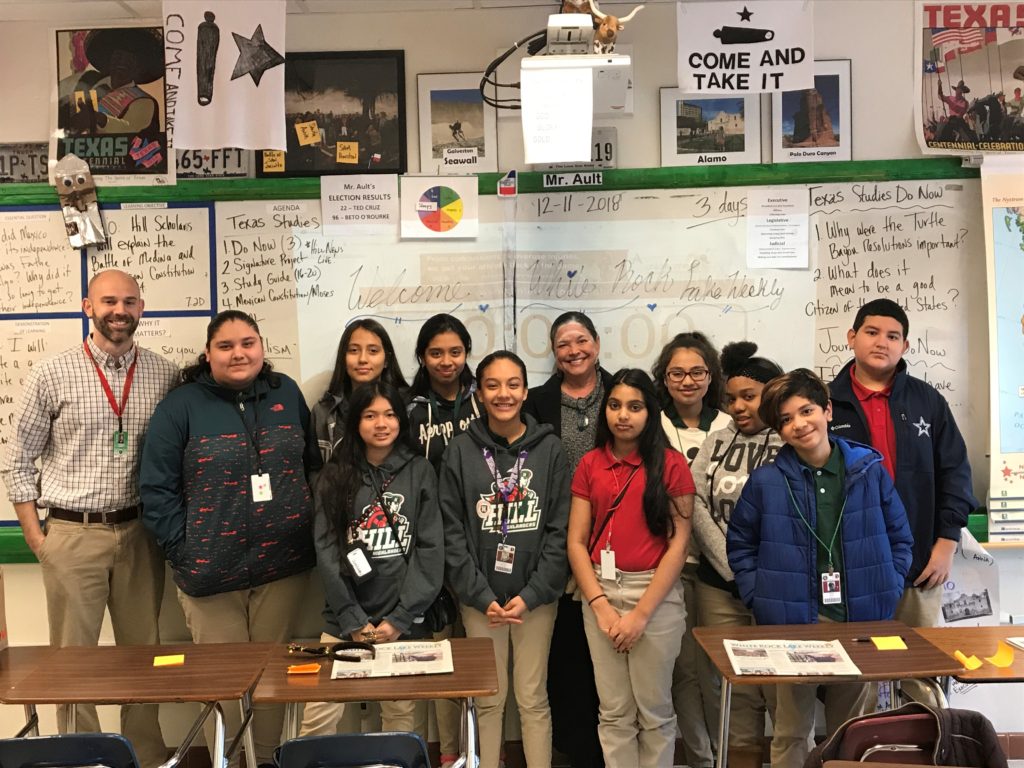
Mr. Ault’s journalism class welcomed White Rock Lake Weekly editor Nancy Black to school.
Photo courtesy of Robert T. Hill Middle School
By Nancy Black
They don’t know it yet, but they are our future. The sixth and seventh graders I spoke to on Tuesday have no idea how important they are. But one day, hopefully, they will.
The students are part of a journalism class at Robert T. Hill Middle School. Taught by professional journalist and devoted teacher Josh Ault, the 14 students who make up his 10:10 a.m. class every day learn the basics of writing a story: the who, what, why, when, where and how of it. But they are also learning so much more.
Mr. Ault is teaching them about truth in journalism. Truth in the facts. It may be more exciting to make up a story, but that is a different style of writing. Journalistic writing is based on the truth of any given situation, not on “alternative facts.”
One of my favorite reporter hints is: If one person tells you it is raining outside, and another insists it is not, it is up to a journalist to look out the window and find out the truth. These children are doing just that. It may not seem like hard core reporting to write about the cafeteria food today, but one day that same cub reporter may uncover corruption by a school district’s food procurement department.
They may not all turn out to be reporters or writers, but learning the importance of the First Amendment, and what it says about freedom of the press and speech, will benefit them in any profession they choose. There is a reason our forefathers made it one of their top priorities in creating the guidelines for our country.
People may not always like the truth, or the person who is telling them the truth, but facts are facts. And real, professional journalists are bound by a very strict Code of Ethics.
Founded in 1909, the Society of Professional Journalists believe: “public enlightenment is the forerunner of justice and the foundation of democracy. Ethical journalism strives to ensure the free exchange of information that is accurate, fair and thorough. An ethical journalist acts with integrity.”
The Society has four principles as its foundation: Seek truth and report it, minimize harm, act independently, and be accountable and transparent. It is only through carrying on those principles to the next generation of reporters and journalists that we can guarantee what we see, read and hear in the future is really the truth.
So, thank you, Mr. Ault, and all the journalism teachers in our city, country and world. A free, ethical press is an essential part of a democratic society. Our future depends on your students. Know it!
